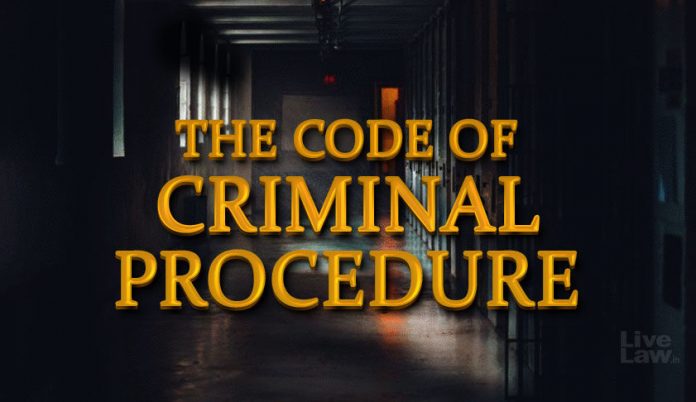This article is written by Shraddha Jain, a student at the Institute of Law, Nirma University, Ahmedabad. This article seeks to elucidate the concept of revisional jurisdiction of the high court and court of sessions mentioned under Section 397 CrPC. Further, this article discusses the provisions of Section 397 in detail along with its scope, limitations, and objectives of the revisional jurisdiction.
This article has been published by Sneha Mahawar.
Table of Contents
Introduction
Sections 397 to 401 of the Code of Criminal Procedure (CrPC), 1973, are concerned with the High Court’s revisional jurisdiction. The revisional jurisdiction is drawn from three sources:
- Sections 397, 398, 399, 400 and 401 of the Criminal Procedure Code;
- Article 227 of the Constitution of India; and
- The power to issue the writ of certiorari.
In this article, we will be especially dealing with Section 397 of the CrPC, which talks about the power of the high court and session court with regard to revisional jurisdiction. In order to eliminate the potential for any miscarriage of justice in circumstances when no right of appeal is available, the Code has established another review mechanism, namely, “revision.” Sections 397, 398, 399, 400, 401, 402, 403, 404 and 405 deal with the higher courts’ “revision” powers and the method for using these powers. The upper courts have broad revisionary powers that are discretionary in nature. As a result, no party has an opportunity to be heard before any court exercising such powers.
Scope of revision under Section 397 CrPC
In the case of Amit Kapoor v. Ramesh Chander (2012), the Supreme Court highlighted the scope of revision under Sections 397 and 401 CrPC read with Section 482 CrPC, where it was stated that if one looks into the judicial pronouncements of this Court, it arises that the revisional jurisdiction can be exercised where the judgements under issue are hugely inaccurate, there is no adherence with the provisions of law, the recorded finding is not supported by evidence, relevant evidence is omitted, or judicial discretion is used arbitrarily or perversely. Though the provision does not contain the phrase “prevent abuse of any court’s procedure or otherwise to achieve the goals of justice,” the power of Section 397 is quite restricted. “The legality, validity, or accuracy of a court order is the basic cornerstone of exercising authority under Section 397, but justice must also be done.“
Section 397 CrPC: an overview
The power of the revisional or appellate court [Subsection (1)]
Section 397 empowers the high court or the court of session to call and investigate the record of any proceeding before any subordinate court for the purpose of ascertaining:
- The accuracy, legal validity, or prudence of any order passed by the lower court; or
- The consistency of any proceedings of such a court.
The high court or court of session may also order that the implementation of any judgement or order be suspended and that the accused be freed on bail or his own bond pending the examination of the record. Section 397 of the Code also empowers revisional courts to grant bail.
All magistrates are subordinate to the sessions judge for the purposes of this Section [explanation]
Section 397(1) emphasises that, for the purposes of Sections 397 and 398, all magistrates, whether executive or judicial, are regarded as subordinate to the sessions judge. Where there is no appeal, the only choice is revision.
Interlocutory orders may not be revised [Subsection (2)]
Subsection (2) prohibits the use of the revision authority in connection with any interlocutory order made in any appeal, inquiry, trial, or other action. This provision was enacted in order to expedite the resolution of criminal cases. It was believed that revision petitions against interlocutory orders would not only prolong but even occasionally destroy justice. For example a bail order, a call for a document, and so on. These orders are not particularly important, and the merits of the case will not be altered by them. In general, revision is based on a non-interlocutory order. However, if an interlocutory order is issued without jurisdiction (i.e., because the court lacks the authority to issue the order), a revision will be granted. For example, the rejection of the complaint is a substantial order since it directly affects the merits of the case as a whole, thus it is not an interlocutory order and revision will be granted.
The Supreme Court in K.K. Patel and Anr. v. State of Gujarat (2000) ruled that an order issued during an interim stage is not the exclusive test. If a party’s objection results in the conclusion of the action, the order issued in response to that objection is not an interlocutory order. Where, in a revision filed by the appellant against the magistrate’s order taking cognizance of the offences alleged in the respondent’s complaint, the appellant brought up an objection that the claim was precluded by limitation under Section 161 of the Bombay Police Act, 1951, and the objection, if affirmed, would have the impact of dismissing the whole prosecution proceedings against the appellant, the magistrate’s order could not be treated as an interlocutory order. It was not covered by Section 397(2).
No further applications for revision are allowed after one application [Subsection (3)]
According to sub-section (3), one cannot submit a revision application in both the high court and the court of sessions at the same time; hence, parallel applications are not permitted. If the court of session denies the application, the applicant may appeal to the high court, but not the other way around.
The term “made” implies creation, entertainment, and decision-making. If a session judge determines that a request should be brought to the high court, a new application to the high court is competent. The sub-section expressly prohibits the high court from entertaining an application from anybody who has applied to the session judge, and vice versa.
Objective of revisional jurisdiction u/s 397 CrPC
The purpose of the revision provisions is to rectify a legal deficiency or a jurisdictional or legal mistake. There must be a well-founded violation, and it may not be appropriate for the court to investigate orders that, on the surface, show thorough study and appear to be in compliance with the law. Revisional jurisdiction can be sought when decisions are severely inaccurate, there is no conformity with the legal provisions, the judgement recorded is based on no proper evidence, important evidence is omitted, or judicial power is exercised arbitrarily or perversely. These are not exhaustive classifications, but rather examples. Each case would have to be decided individually. Another widely acknowledged standard is that the higher court’s revisional authority is extremely limited and cannot be used on a regular basis. One of the limitations is that it cannot be used against an interim or interlocutory order.
Limitations of revisional jurisdiction
Although the revisional powers are broad, they are constrained by some limits. For example,
- Where an appeal exists but no appeal is filed, usually, no proceeding by way of revision shall be entertained at the request of the party who might have appealed;
- Revisional powers are not operative in regard to any interlocutory order passed in any appeal, inquiry, or trial;
- The court exercising revisional powers is not permitted to transform an acquittal finding into a conviction finding;
- A person may make only one revision application, either to the court of session or to the high court; if such a request is made to one court, no additional application from the same party will be heard by the other court.
Suo moto exercise of power
The high court cannot reject a revision on the technical grounds of limitation. The high court should use its suo moto revision power because it cannot permit irregularities and a miscarriage of justice to continue. Subsection (2) expressly prohibits the reconsideration of interlocutory orders. In the matter of Naresh Kumar v. Registrar (2008), the Punjab and Haryana High Court ruled in favour of the petitioner. The suo moto authority of revision does not extend to converting suo moto revision procedures into an appeal against acquittal and subsequently convicting the accused. The High Court should have reversed the acquittal ruling and remanded the case for retrial. The Supreme Court overturned the conviction decision and remanded the matter to the trial court for further proceedings in conformity with the law. The appellant was permitted to seek bail.
Section 397 read with Section 482 CrPC
The Supreme Court agreed with the legal argument in Dhariwal Tobacco Products Ltd v. State of Maharashtra (2008) that the existence of an additional option of criminal revision under Section 397 of the CrPC cannot be a valid reason to dismiss an application under Section 482 of the CrPC. However, in the case of Mohit alias Sonu v. State of Uttar Pradesh (2013), an opposite opinion was held that when an order under issue is not interlocutory in character and is amenable to the high court’s revisional jurisdiction, there should be a bar to using the high court’s inherent jurisdiction. Because of this dispute, these matters were sent to the Hon’ble Chief Justice for referral to a bigger bench.
A three-judge bench in Prabhu Chawla v. State of Rajasthan (2016) held that Section 482 starts with a non-obstante clause, which states, “Nothing contained in this Code shall be considered to restrict or actually impact the inherent jurisdiction of the High Court to make such orders as may be required to give effect to any order under this code, to stop the abuse of the procedure of any Court, or otherwise to safeguard the ends of justice.” Because Section 397 of the CrPC applies to all orders other than interlocutory ones, a contrary interpretation would restrict the availability of inherent powers under Section 482 of the CrPC to minor interlocutory orders. It was decided that the case of Mohit alias Sonu did not adequately articulate the law with respect to the High Court’s inherent power under Section 482 of the CrPC.
So it can be said that the power of the High Court under Section 482 CrPC cannot be applied in regard to interlocutory orders since the bar of Section 397(2) CrPC also extends to Section 482 CrPC: When Section 397(2) CrPC bans interference with interlocutory orders, Section 482 CrPC cannot be used to accomplish the same goal. In other words, because Section 397(2) CrPC prohibits interfering with interlocutory orders, recourse to Section 482 CrPC is not authorised. To set aside an interlocutory order, the prohibition in Section 397 CrPC shall prevail.
Recent judicial pronouncements on Section 397 CrPC
The State Of Gujarat v. Afroz Mohammed Hasanfatta (2019)
In this case, the Gujarat High Court overturned an order by a Chief Judicial Magistrate who had taken notice of the criminal offences on the grounds of the police’s second supplementary charge sheet and commanded the issuing of the process to the suspect. The bench of R. Banumathi and Indira Banerjee held that the High Court should not have gotten into the details of the case when it was still in its early stages. The Supreme Court stated that, when hearing a revision under Section 397 CrPC, the High Court does not act as an appellate court and does not have the power to appreciate the evidence except if the lower court’s decision is erroneous.
K Kuppuraj v. J. Thrilokamurthy (2020)
In the case of K Kuppuraj v. J. Thrilokamurthy (2020), the Karnataka High Court held that even if an alternative opinion is available based on the facts, the court cannot appreciate the evidence and reach a different conclusion in exercising its power under Section 397 CrPC. The authority under Section 397 CrPC could be executed only under the following circumstances:
- When the judgement under challenge is highly inaccurate,
- When there is non-compliance with the legal provisions,
- When a finding of fact influencing the decision is not supported by evidence,
- When there is no consideration of the material evidence,
- When the lower court has exerted its discretion unfairly or perversely and acted in excess of its authority or misused its power, resulting in a failure of justice.
Conclusion
The revisional jurisdiction is not intended to test the waters of what may occur in the trial. The revisional court must assess the accuracy, validity, or appropriateness of any decision inter se an order, as well as the uniformity of the lower court’s processes. While doing so, the revisional court does not encroach on the facts and evidence of the case for long; rather, it perceives the material only to satisfy itself about the constitutionality and propriety of the conclusions, sentence, and order and abstains from replacing its own conclusion based on an elaborate examination of evidence.
Frequently Asked Questions (FAQs)
Where can a court exercise its revisional jurisdiction?
Courts usually exercise revisional jurisdiction on the question of law. In the case of Amit Kapoor vs. Ramesh Chander (2012), the Hon’ble Supreme Court held that “normally, revisional jurisdiction should be exercised on an issue of law. However, when factual appreciation is concerned, it must fall into the category of situations that result in a contradictory conclusion. Ultimately, the power must be employed so that justice is served and the court does not misuse its authority. In such instances, mere fear or suspicion would not be adequate grounds for intervention.”
What happens when a revision petition is filed by a private party in response to an acquittal?
Such a petition necessitates a close investigation and an evidence review, but no appeal against the acquittal was filed by the state. The high court’s hasty disposition is not justified. As a result, the case must be remanded to the high court for a new hearing on the merits of the revision.
References
- http://lawhelpline.in/PDFs/CRIMINAL_LAWS/REVISIONS(CRIMINAL).pdf
- https://primelegal.in/2021/03/16/court-while-exercising-its-revision-jurisdiction-cannot-substitute-its-own-conclusion-high-court-of-delhi/
- https://www.livelaw.in/news-updates/delhi-high-court-revisional-jurisdiction-section-482-crpc-framing-of-charges-
- Ratanlal & Dhirajlal, The Code of Criminal Procedure. 23rd edition.
- R.V. Kelkar’s CRIMINAL PROCEDURE. 6th edition.
- Rahul’s IAS, The Code of Criminal Procedure.
Students of Lawsikho courses regularly produce writing assignments and work on practical exercises as a part of their coursework and develop themselves in real-life practical skills.
LawSikho has created a telegram group for exchanging legal knowledge, referrals, and various opportunities. You can click on this link and join:
Follow us on Instagram and subscribe to our YouTube channel for more amazing legal content.
 Serato DJ Crack 2025Serato DJ PRO Crack
Serato DJ Crack 2025Serato DJ PRO Crack













 Allow notifications
Allow notifications


